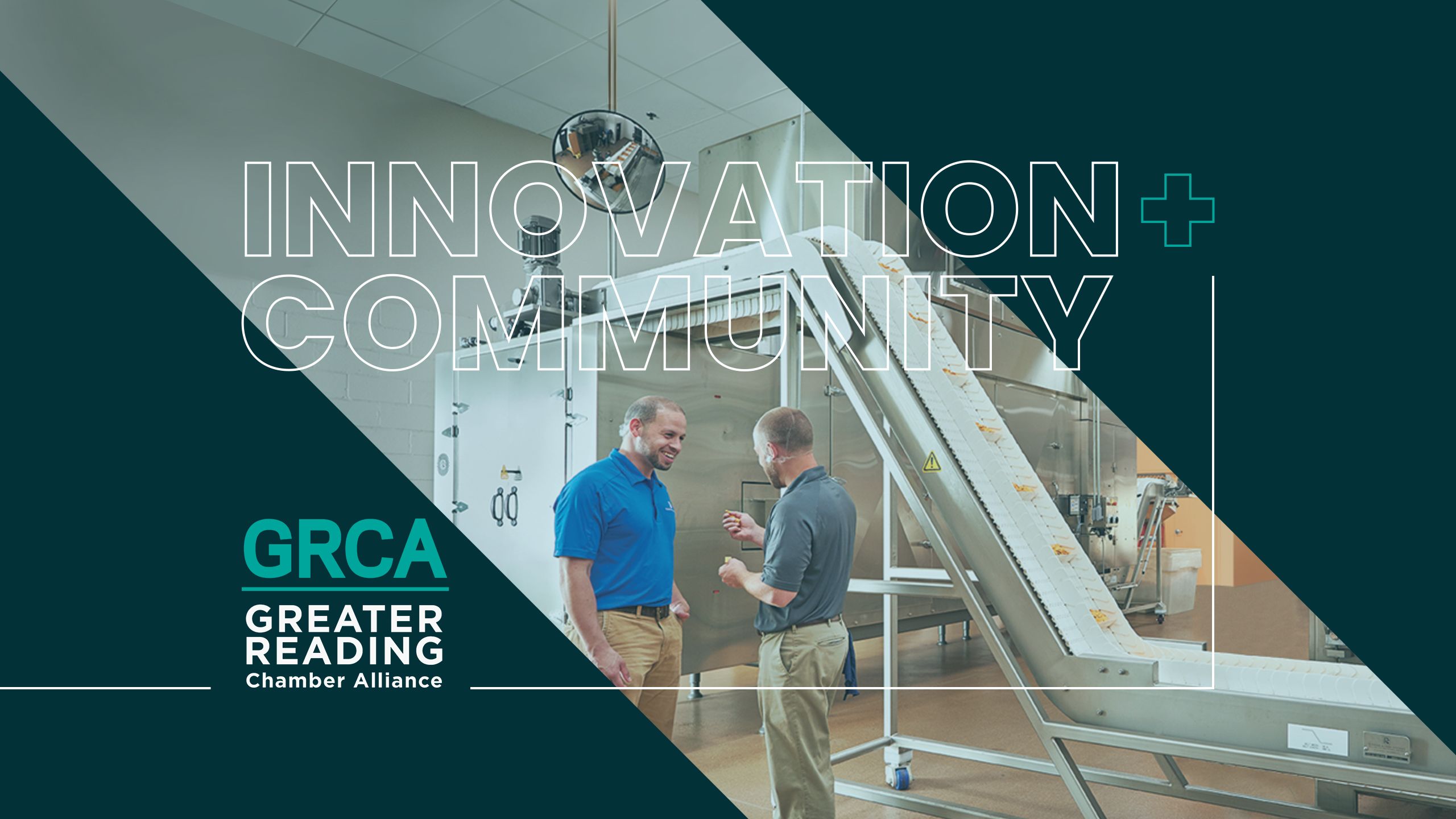
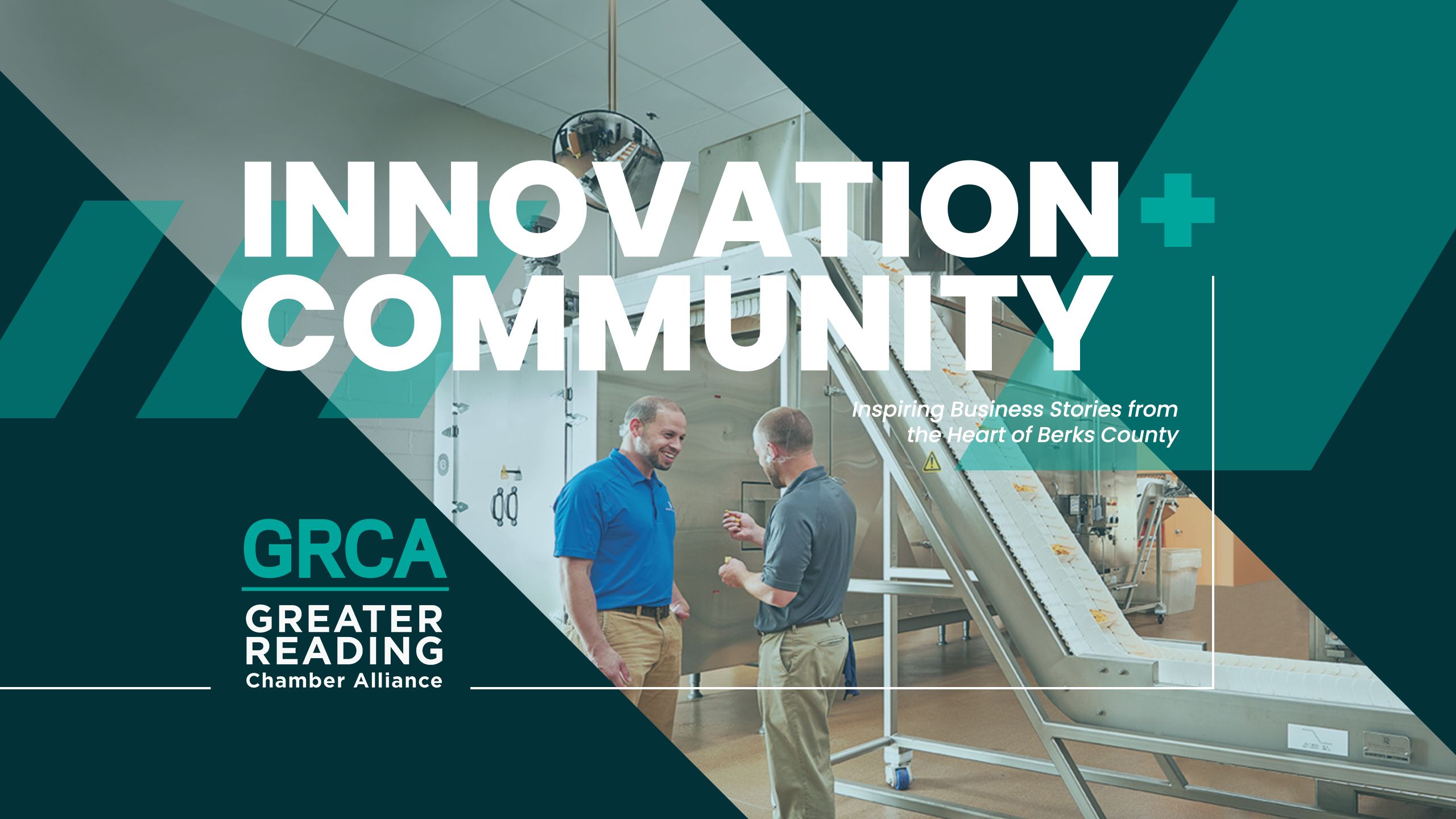

Most Berks County natives are familiar with Reading,
PA’s reputation as the “pretzel capital of the world.”
However, many are surprised to learn that Reading is
also home to one of the snack industry’s premiere
manufacturing system innovators: Reading Bakery
Systems. Thanks to an emphasis on innovation,
adaptation and collaboration, Reading Bakery Systems
(RBS) has exploded from a small pretzel machine
shop in Reading, PA to a trusted partner of global
distributors found in grocery store snack aisles
worldwide. Here’s how they did it…



Most Berks County natives are familiar with Reading, PA’s reputation as the “pretzel capital of the world.” However, many are surprised to learn that Reading is also home to one of the snack industry’s premiere
manufacturing system innovators: Reading Bakery Systems. Thanks to an emphasis on innovation, adaptation and collaboration, Reading Bakery Systems (RBS) has exploded from a small pretzel machine shop in Reading, PA to a trusted partner of global distributors found in grocery store snack aisles worldwide. Here’s how they did it…
The Story Behind Reading Bakery Systems
Like so many others in Berks County, the company started as a small, family-owned and operated business. In response to the needs of local snack makers and producers, Reading Bakery Systems began its journey as Reading Pretzel Machinery (RPM) in 1947. Little did they know that RPM’s ingenious inventions and engineering would soon set the stage for modern, large-scale pretzel production.
With an emphasis on creativity, innovation and integrity, RPM’s early stages of growth focused on developing new technology for perfecting the pretzel manufacturing process. RPM’s Lead Engineer, Edwin I. Groff, revolutionized the industry with his unique approach to manufacturing equipment design and development.
His son, Terry, then led the charge to expand the company’s operations to keep up with demand. Over the next few decades, the organization enhanced its manufacturing facilities and doubled down on its investment into the community: creating jobs, building relationships and expanding its footprint. With the large number of snack and pretzel bakers within 100 miles of Reading, RPM was well-positioned to support the various snack makers in the region.
But they didn’t stop there. In 1997, RPM began to explore relationships with cookie and cracker equipment line suppliers. Accordingly, RPM became known as Reading Bakery Systems (RBS) to reflect the full span of its offerings. In that same year, Terry opened what would become the first of three technical centers for product development and testing, now known as the Science & Innovation Center.
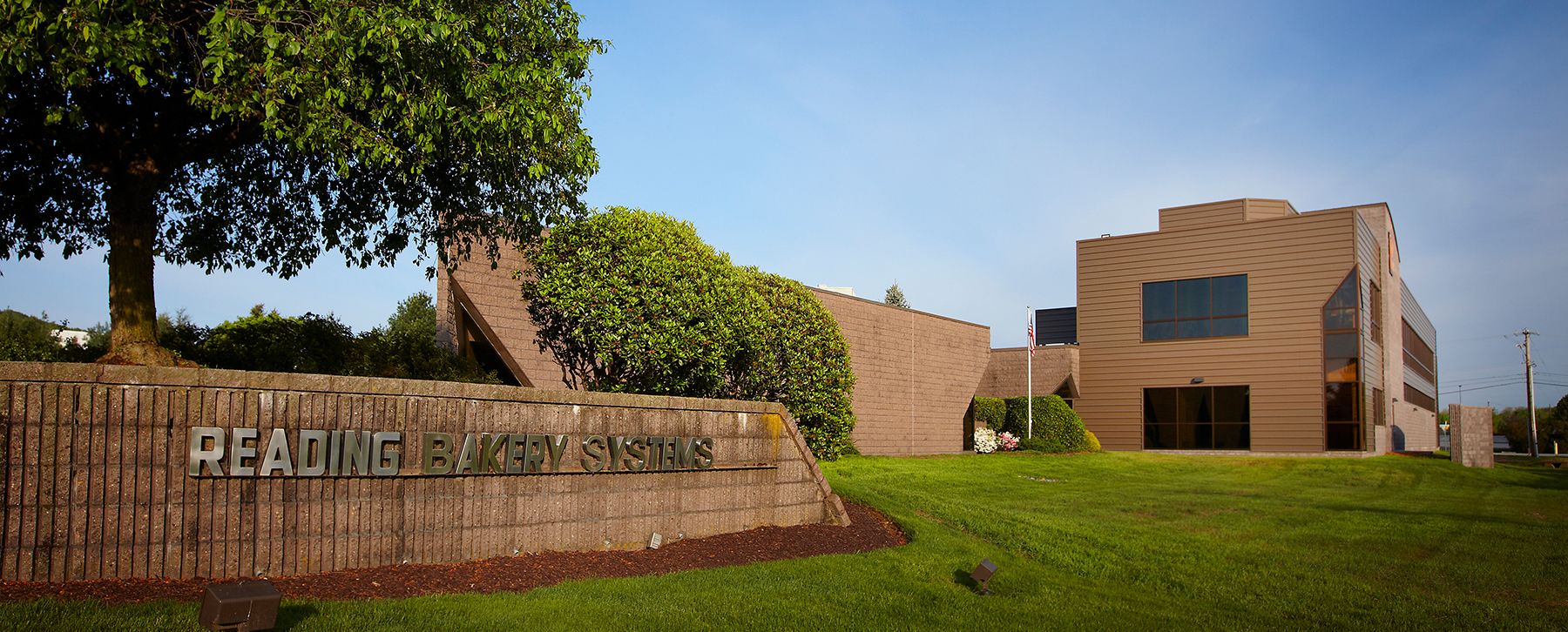
Today, RBS has a worldwide network of business development and support teams, along with full-scale production facilities in both the United States and China. Its headquarters and main manufacturing facility remain based in Robesonia, Pennsylvania, where around 25% of the current staff have been employed by RBS for at least 20 years. And what started as an operation bringing in $7 to $8 million annually is now on track to soon cross the $100 million threshold.
Even as RBS has grown in size, it still retains a tight-knit family feel, thanks to monthly events, outings for the whole family and payday celebrations. Terry, who now serves as a consultant for the organization, is still considered its heart and soul — he currently guides the next generation of leaders who will steer RBS into the future.
And, perhaps most importantly, an undercurrent of innovation and agility, instilled by its founders and forerunners, remains central to the organization. There’s a palpable pride on the manufacturing floor and in the hallways at RBS; its team members are empowered to become experts in their fields while contributing to the organization’s overall mission.
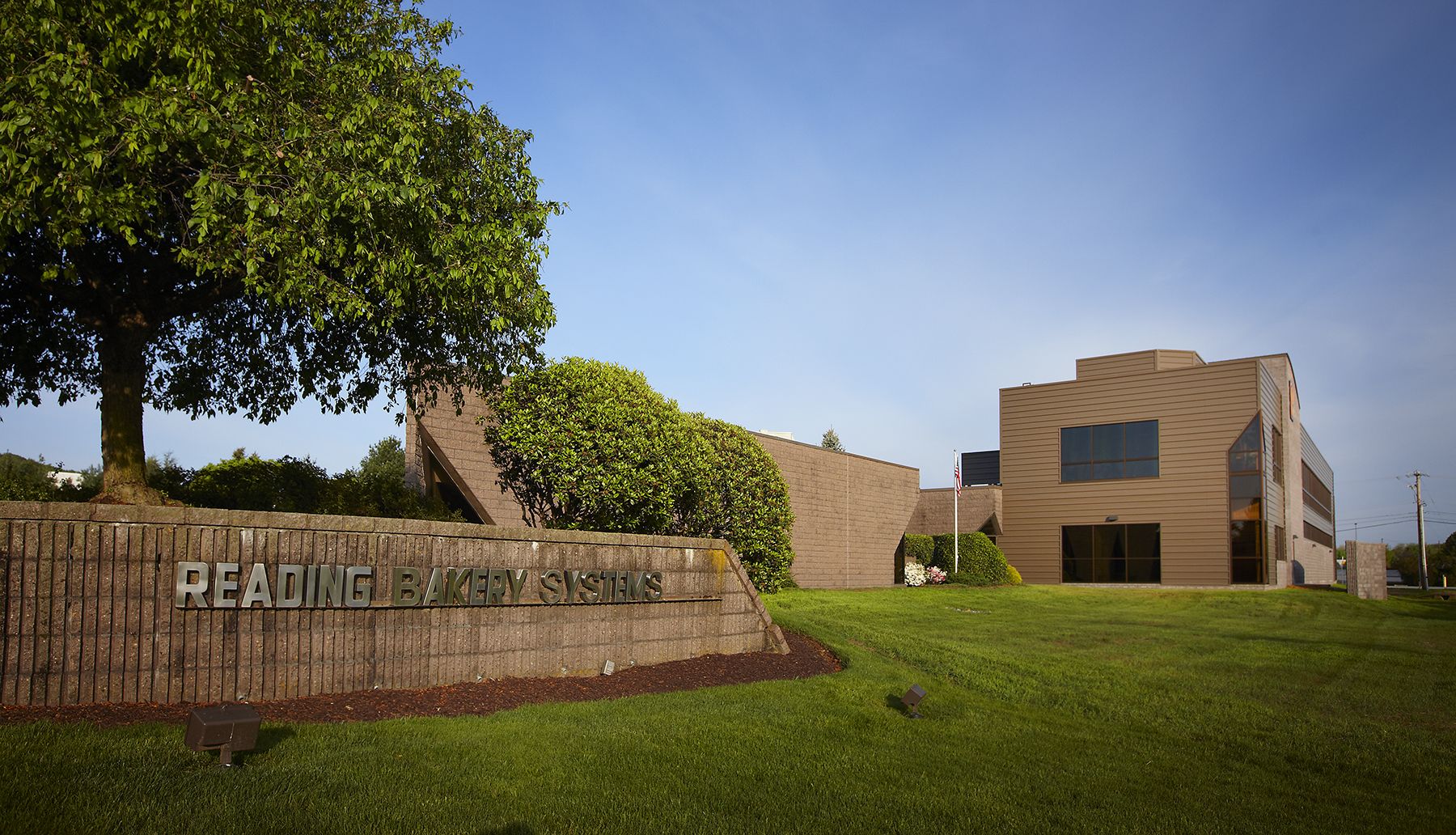
The Story Behind Reading Bakery Systems
Like so many others in Berks County, the company started as a small, family-owned and operated business. In response to the needs of local snack makers and producers, Reading Bakery Systems began its journey as Reading Pretzel Machinery (RPM) in 1947. Little did they know that RPM’s ingenious inventions and engineering would soon set the stage for modern, large-scale pretzel production.
With an emphasis on creativity, innovation and integrity, RPM’s early stages of growth focused on developing new technology for perfecting the pretzel manufacturing process. RPM’s Lead Engineer, Edwin I. Groff, revolutionized the industry with his unique approach to manufacturing equipment design and development.
His son, Terry, then led the charge to expand the company’s operations to keep up with demand. Over the next few decades, the organization enhanced its manufacturing facilities and doubled down on its investment into the community: creating jobs, building relationships and expanding its footprint. With the large number of snack and pretzel bakers within 100 miles of Reading, RPM was well-positioned to support the various snack makers in the region.
But they didn’t stop there. In 1997, RPM began to explore relationships with cookie and cracker equipment line suppliers. Accordingly, RPM became known as Reading Bakery Systems (RBS) to reflect the full span of its offerings. In that same year, Terry opened what would become the first of three technical centers for product development and testing, now known as the Science & Innovation Center.
Today, RBS has a worldwide network of business development and support teams, along with full-scale production facilities in both the United States and China. Its headquarters and main manufacturing facility remain based in Robesonia, Pennsylvania, where around 25% of the current staff have been employed by RBS for at least 20 years. And what started as an operation bringing in $7 to $8 million annually is now on track to soon cross the $100 million threshold.
Even as RBS has grown in size, it still retains a tight-knit family feel, thanks to monthly events, outings for the whole family and payday celebrations. Terry, who now serves as a consultant for the organization, is still considered its heart and soul — he currently guides the next generation of leaders who will steer RBS into the future.
And, perhaps most importantly, an undercurrent of innovation and agility, instilled by its founders and forerunners, remains central to the organization. There’s a palpable pride on the manufacturing floor and in the hallways at RBS; its team members are empowered to become experts in their fields while contributing to the organization’s overall mission.
From its early days as a small machine shop to its current position in the global marketplace, a commitment to continuous improvement in direct response to customers' needs has helped RBS stand the test of time.
Current president Joseph Zaleski remembers joining the team in 1990 and recalls how many hats the team members wore within the business — a lot! But for these high-powered and dedicated team members, constantly tackling different challenges was all a part of the fun. Additionally, their small size afforded them the ability to work side-by-side with their customers to identify new solutions, trial new systems and develop new technology.
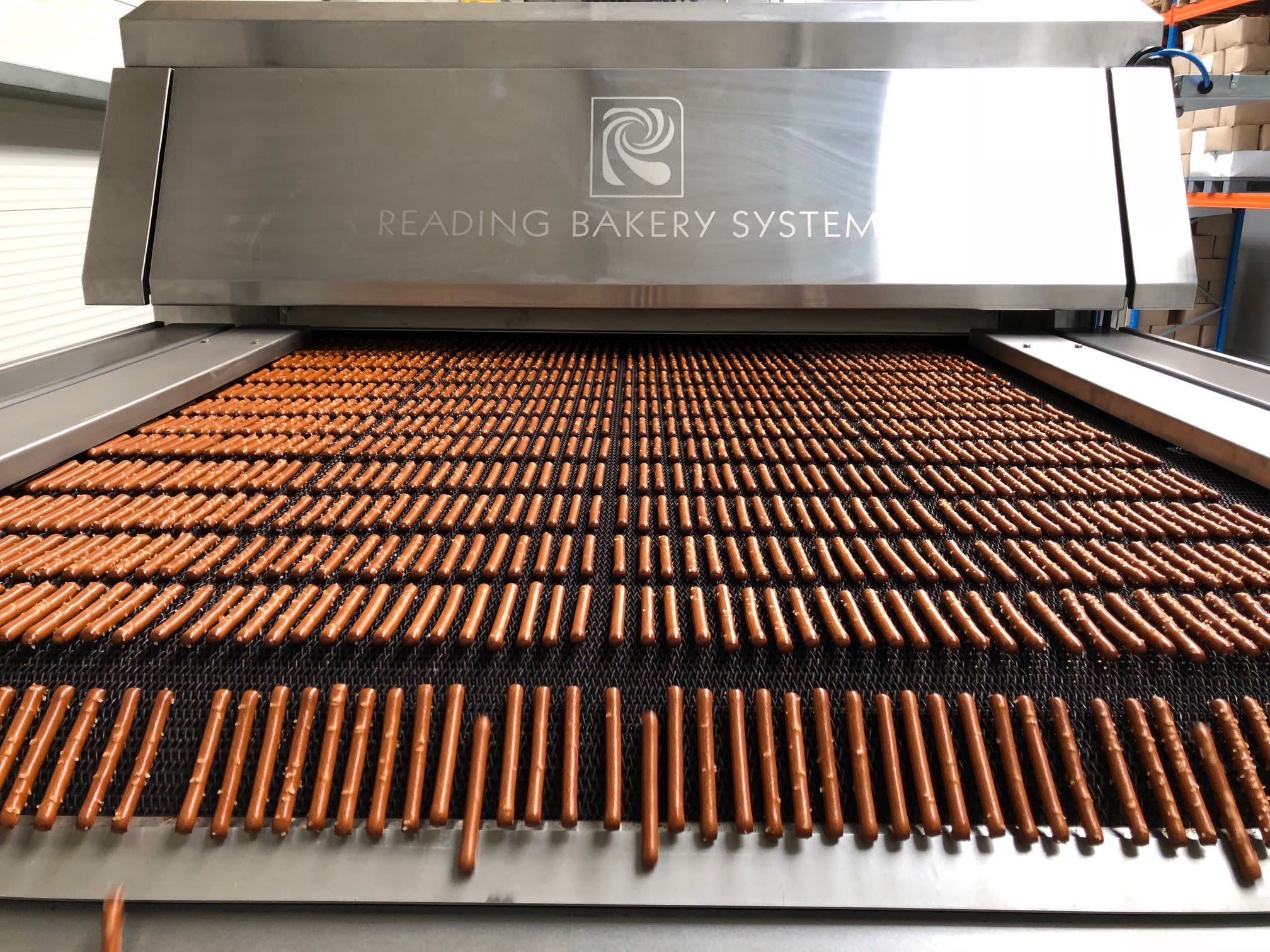
“Pivoting isn’t always easy; there’s a steady balance that must be struck between scaling your business and remaining agile.”
Remaining responsive has come with additional perks that go beyond business: RBS became the owner of numerous patents for innovative designs in food forming and bakery machinery; its intellectual property helps shore up the future of the organization while meeting the needs of an increasingly complex snack market.
RBS knows that an open feedback loop is necessary to stay competitive, along with a place that respects and welcomes new ideas. And team members are just as important as customers in keeping the spirit of innovation embedded within the company’s DNA. Together, RBS is able to create systems, tools and applications that continue to shape the food manufacturing industry.

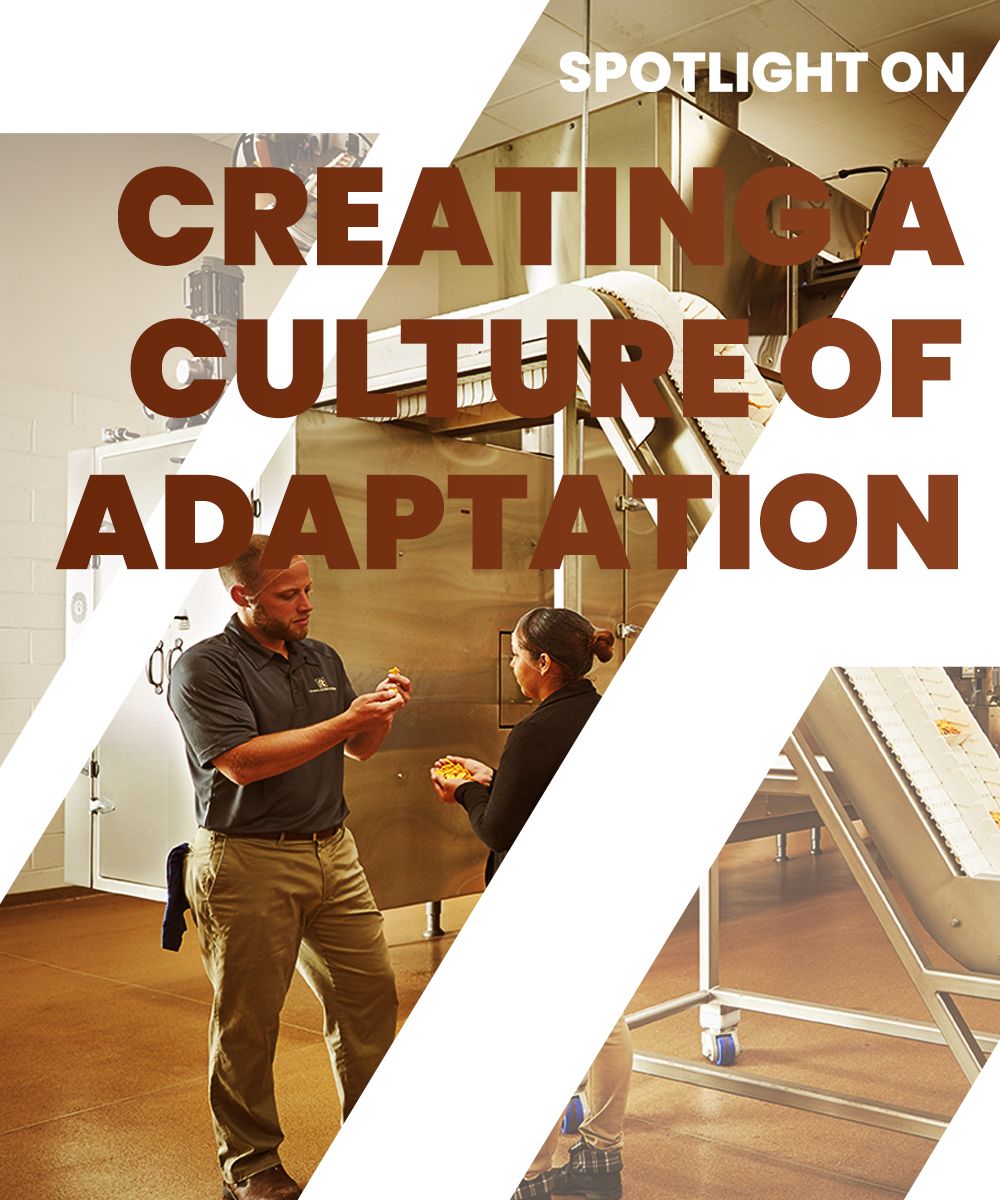
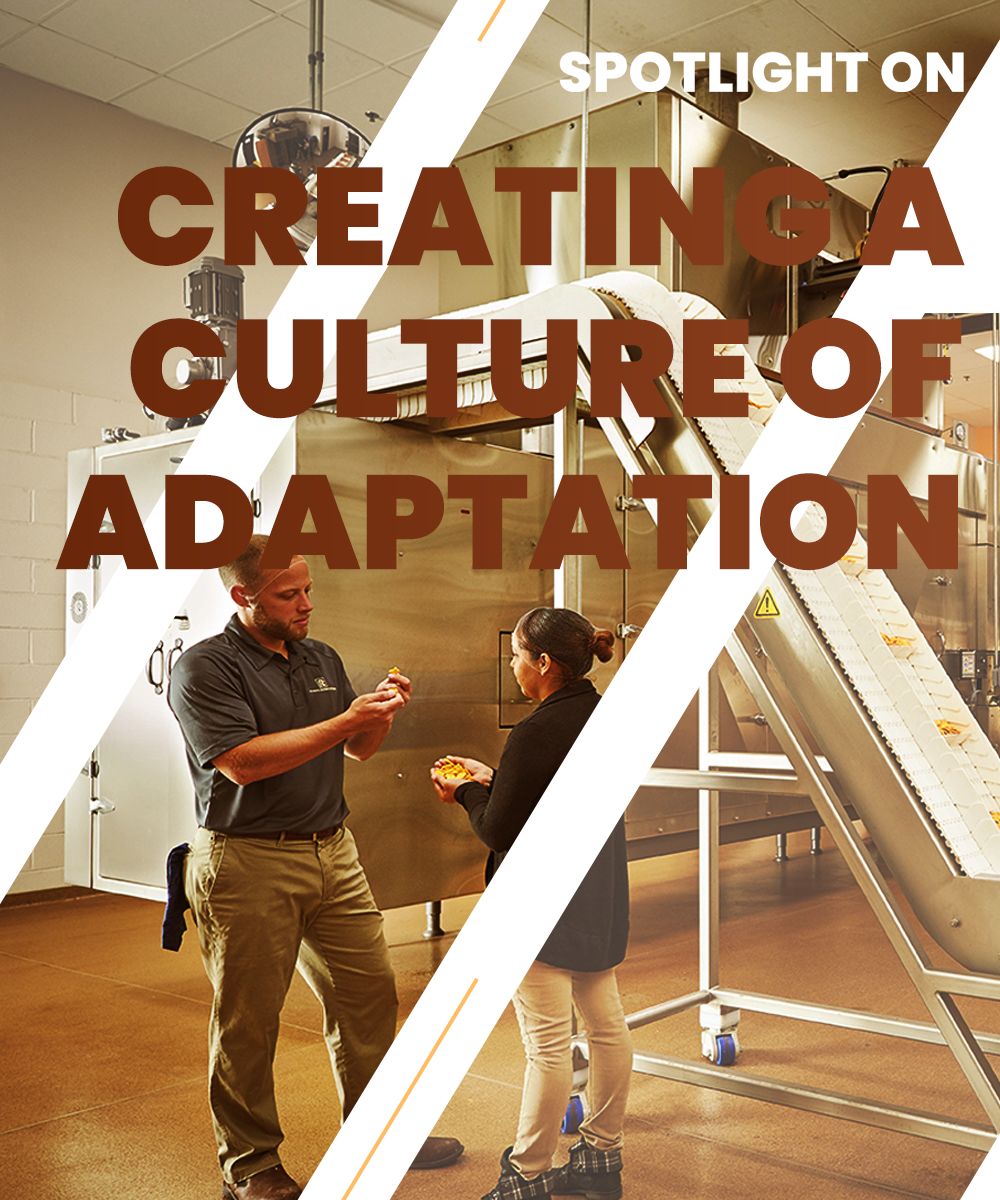
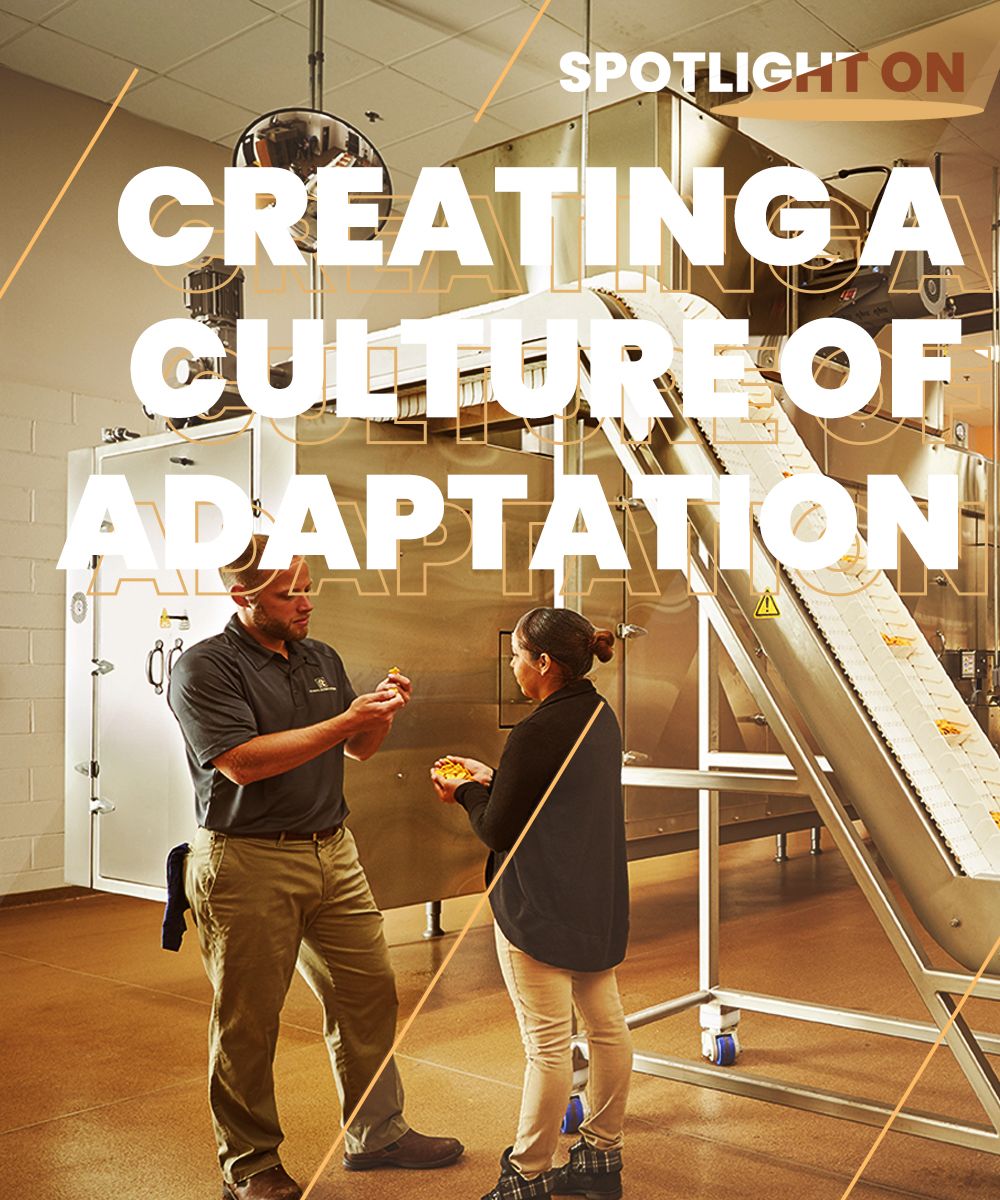
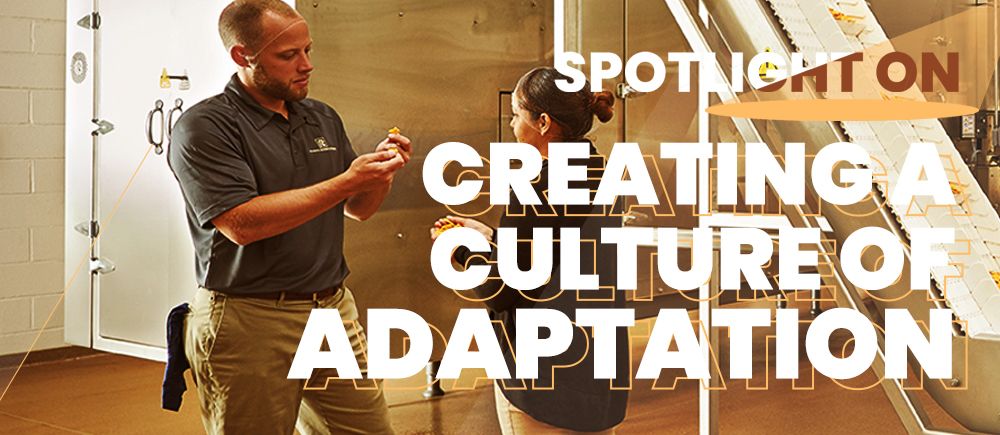
From its early days as a small machine shop to its current position in the global marketplace, a commitment to continuous improvement in direct response to customers' needs has helped RBS stand the test of time.
Current president Joseph Zaleski remembers joining the team in 1990 and recalls how many hats the team members wore within the business — a lot! But for these high-powered and dedicated team members, constantly tackling different challenges was all a part of the fun. Additionally, their small size afforded them the ability to work side-by-side with their customers to identify new solutions, trial new systems and develop new technology.

“Pivoting isn’t always easy; there’s a steady balance that must be struck between scaling your business and remaining agile.”
Remaining responsive has come with additional perks that go beyond business: RBS became the owner of numerous patents for innovative designs in food forming and bakery machinery; its intellectual property helps shore up the future of the organization while meeting the needs of an increasingly complex snack market.
RBS knows that an open feedback loop is necessary to stay competitive, along with a place that respects and welcomes new ideas. And team members are just as important as customers in keeping the spirit of innovation embedded within the company’s DNA. Together, RBS is able to create systems, tools and applications that continue to shape the food manufacturing industry.
As the world becomes increasingly interconnected, the love of crispy, crunchy, tasty pretzels and snacks has spanned the globe. But, as RBS has discovered, each region has its own preferences and nuances. Europeans, for example, often coat their pretzels with poppy seeds or sesame seeds, while Americans tend to be the most adventurous, experimenting with creative coatings like yogurt, mustard, cinnamon sugar and cheese.
Because RBS partners with both national and international snack producers, it's critical for its team to build connections with other cultures.
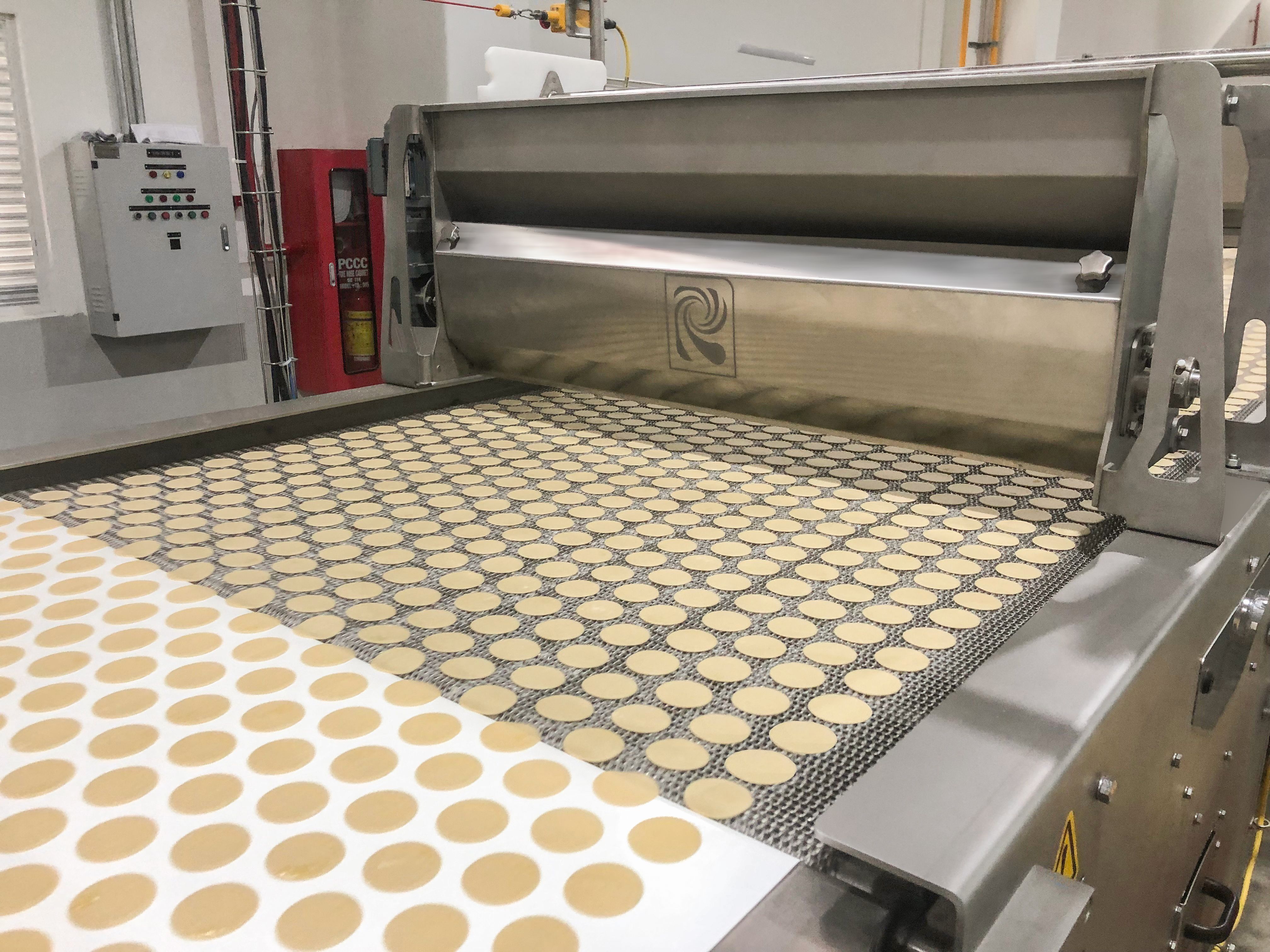
RBS’s team members, who can participate in both short and extended stints abroad, also benefit from the opportunity to expand their personal and professional horizons through international travel. Immersing themselves in other countries where they are exposed to new landscapes, languages, customs and (of course!) cuisine helps its members refresh their perspective and stay sharp.
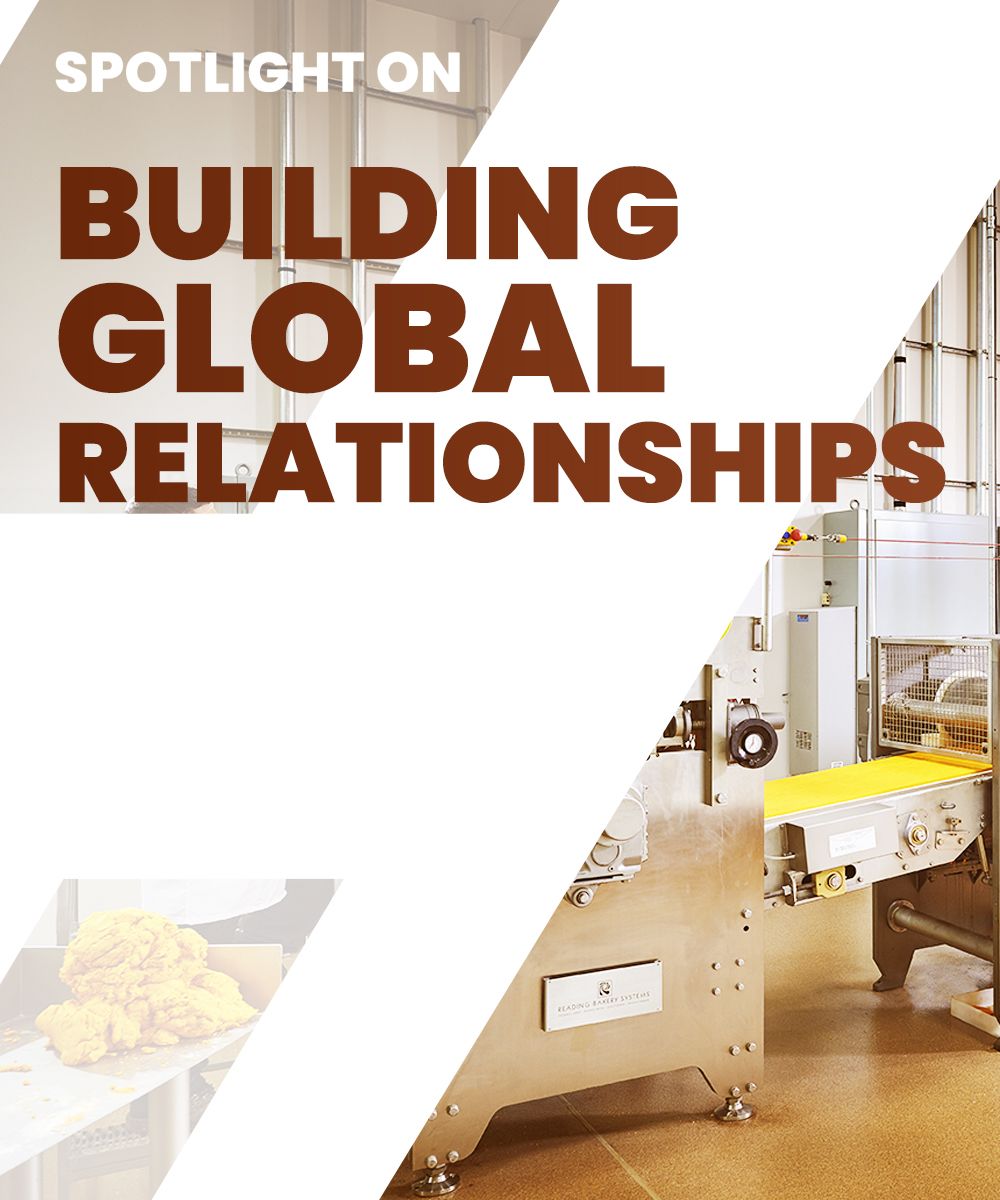
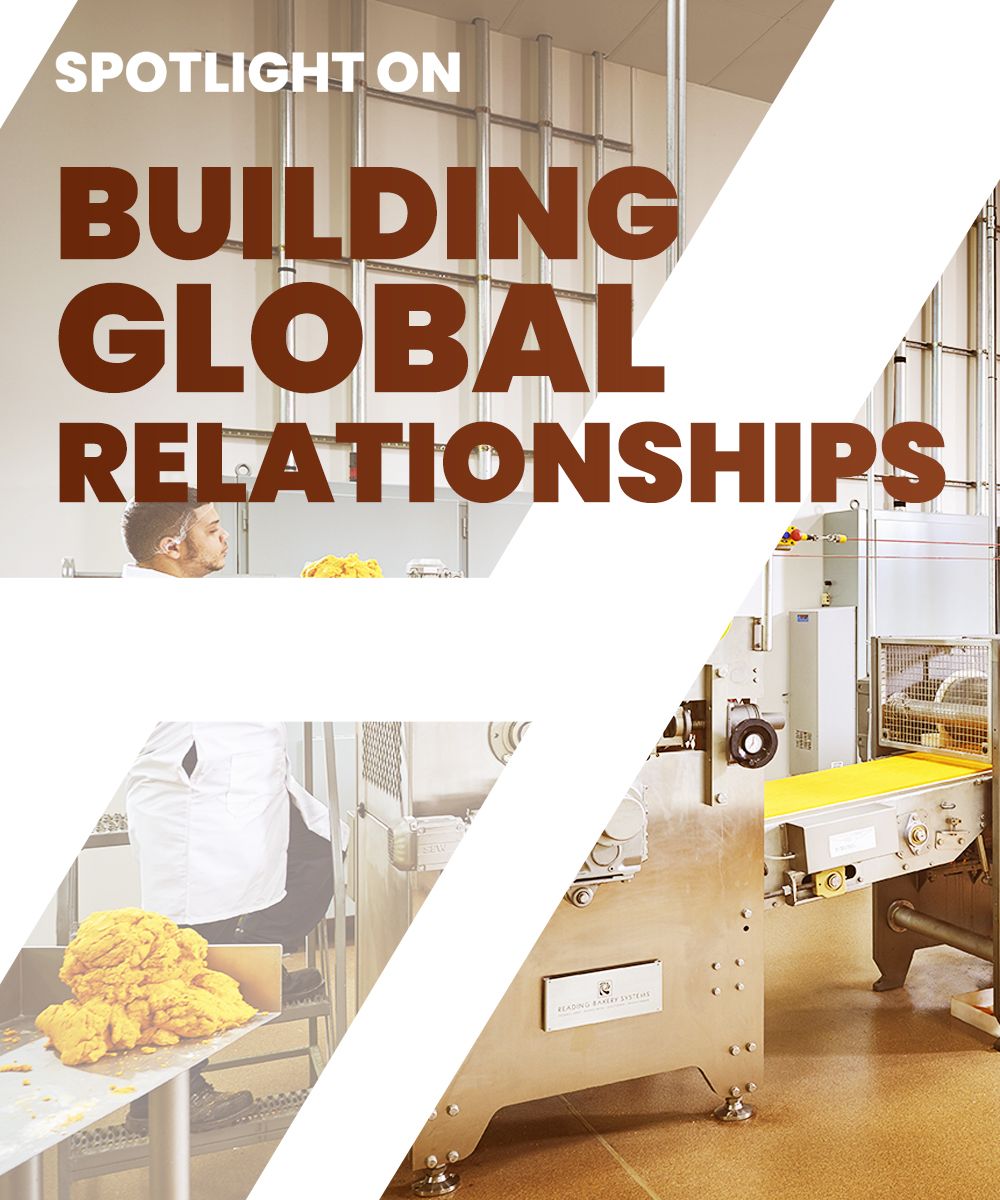
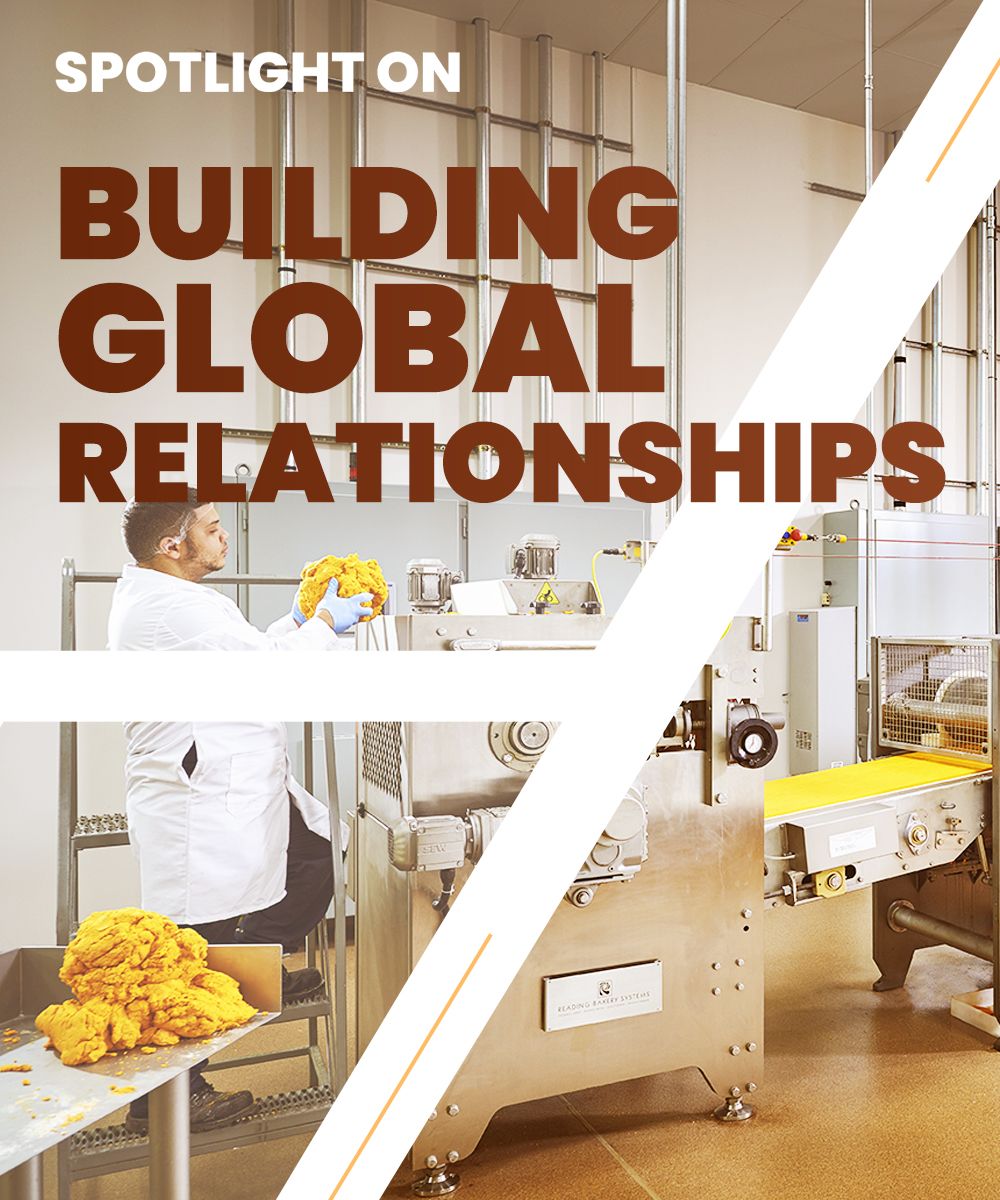
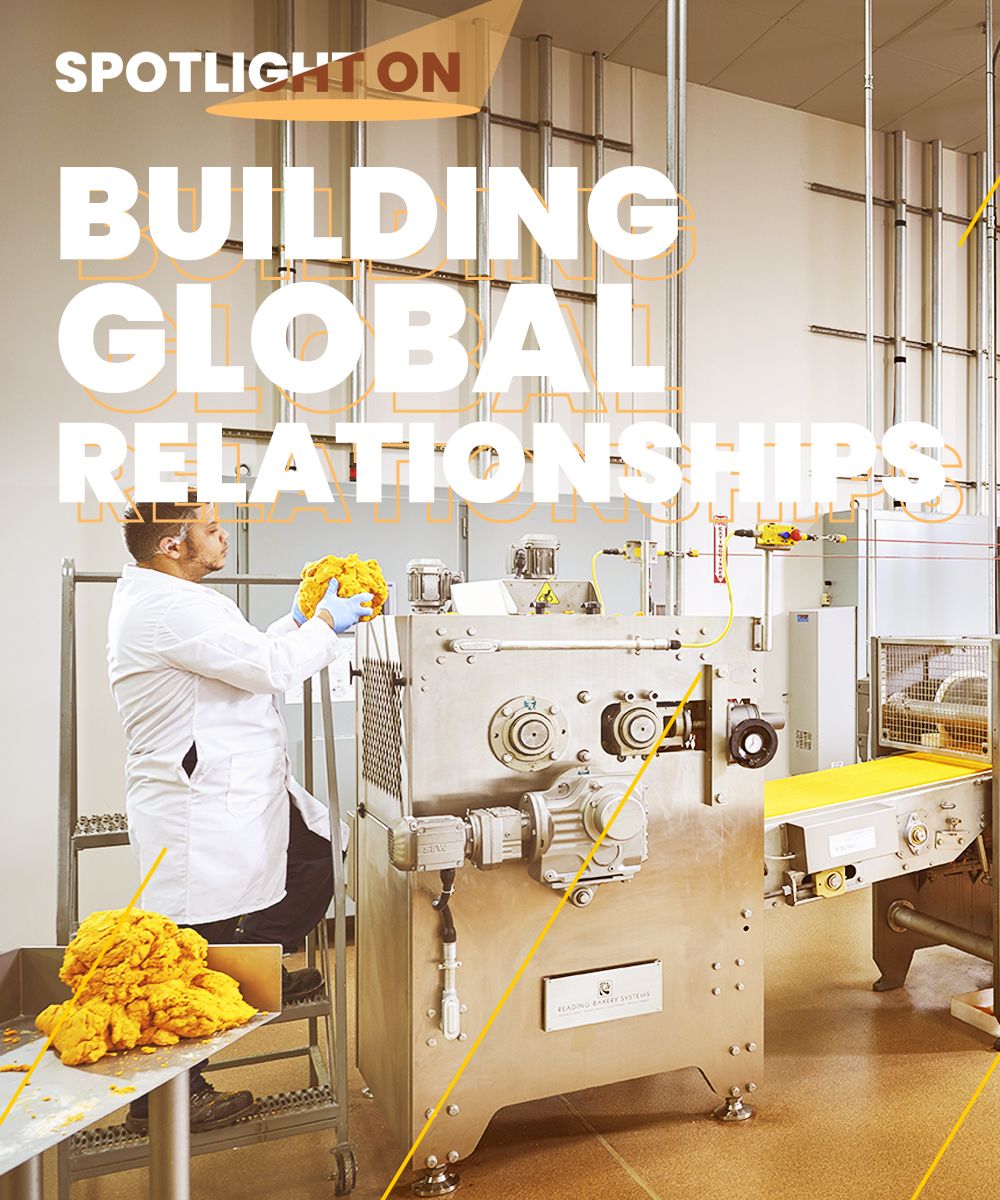
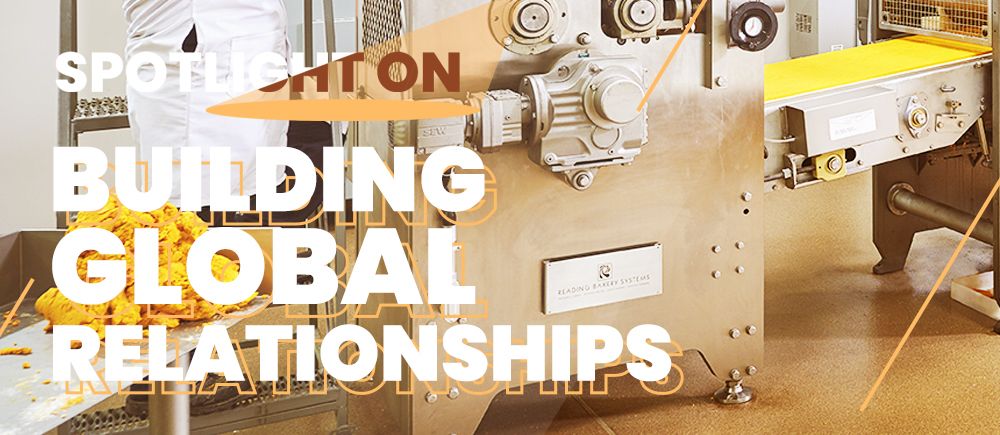
As the world becomes increasingly interconnected, the love of crispy, crunchy, tasty pretzels and snacks has spanned the globe. But, as RBS has discovered, each region has its own preferences and nuances. Europeans, for example, often coat their pretzels with poppy seeds or sesame seeds, while Americans tend to be the most adventurous, experimenting with creative coatings like yogurt, mustard, cinnamon sugar and cheese.
Because RBS partners with both national and international snack producers, it's critical for its team to build connections with other cultures.

RBS’s team members, who can participate in both short and extended stints abroad, also benefit from the opportunity to expand their personal and professional horizons through international travel. Immersing themselves in other countries where they are exposed to new landscapes, languages, customs and (of course!) cuisine helps its members refresh their perspective and stay sharp.
For customers looking to bring a new product to market or perfect processes for replication, the Science & Innovation Center is the perfect place to do so. As a fully equipped, licensed food processing research and development center, anyone can come in and use RBS’ mixing, forming, baking and drying equipment. The best part is that staff and customers work together to solve problems and identify new opportunities — whether it’s related to validating new ingredients, conducting shelf-life studies or producing market samples for testing.
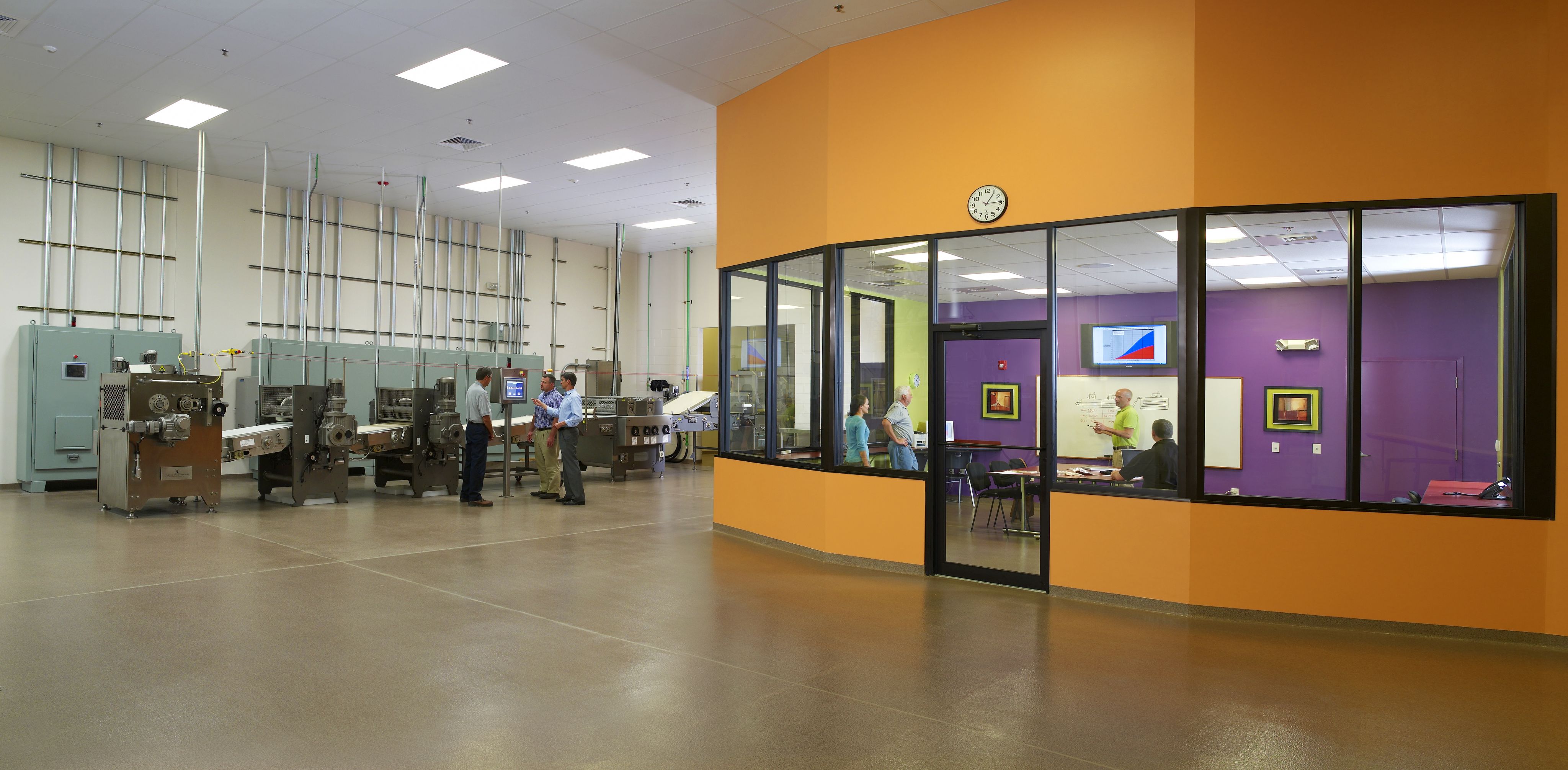
Science & Innovation Center users include academic researchers carrying out experiments to test theories and concepts; major snack manufacturers testing out potential new snacks and products without sacrificing their own employee time, equipment time or production facilities; and RBS’ own staff, trialing new equipment and processes to meet the needs of the current day. As an added bonus, RBS team members can see firsthand where trends are headed, anticipate future needs and invent or adapt technology to meet those needs.
As a result, guests from around the world regularly travel to the Greater Reading area to use the Science & Innovation Center. Staff members and community members gain perspective and new insights, leading to new innovations and ideas, while local businesses thrive from the influx of visitors to the region. New products and equipment solutions, with world-class research and development facilities — all right here in Reading, PA.
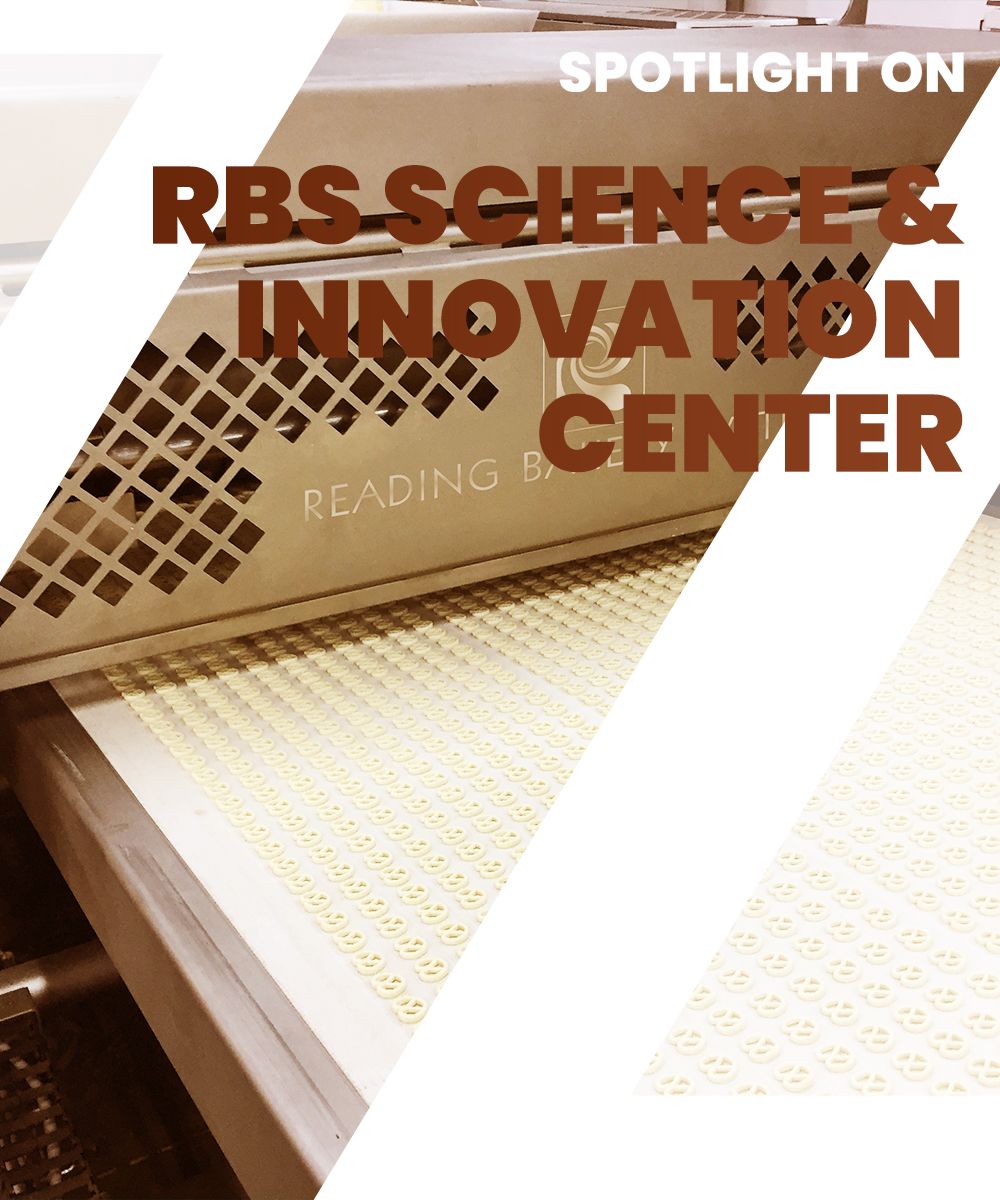
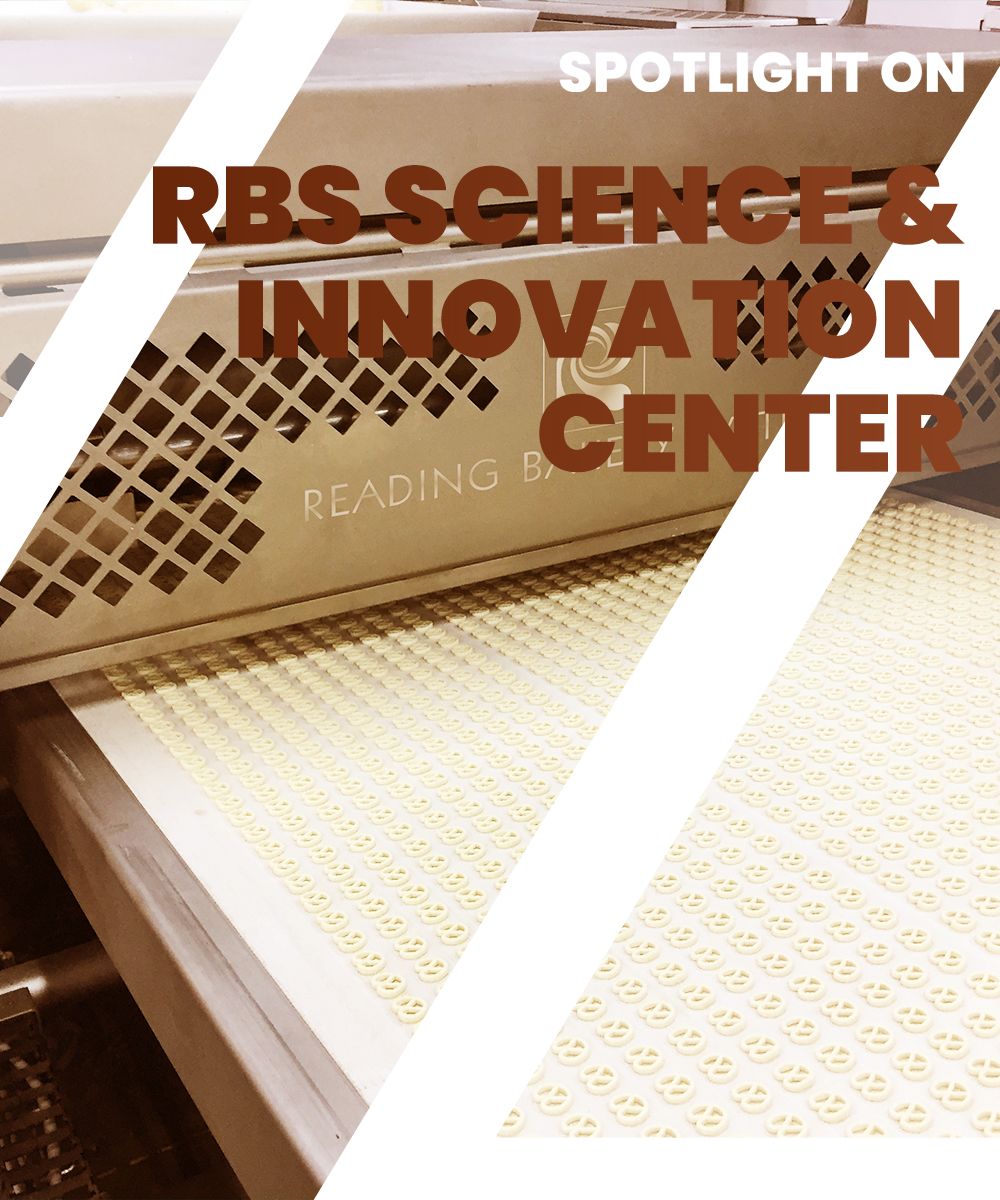
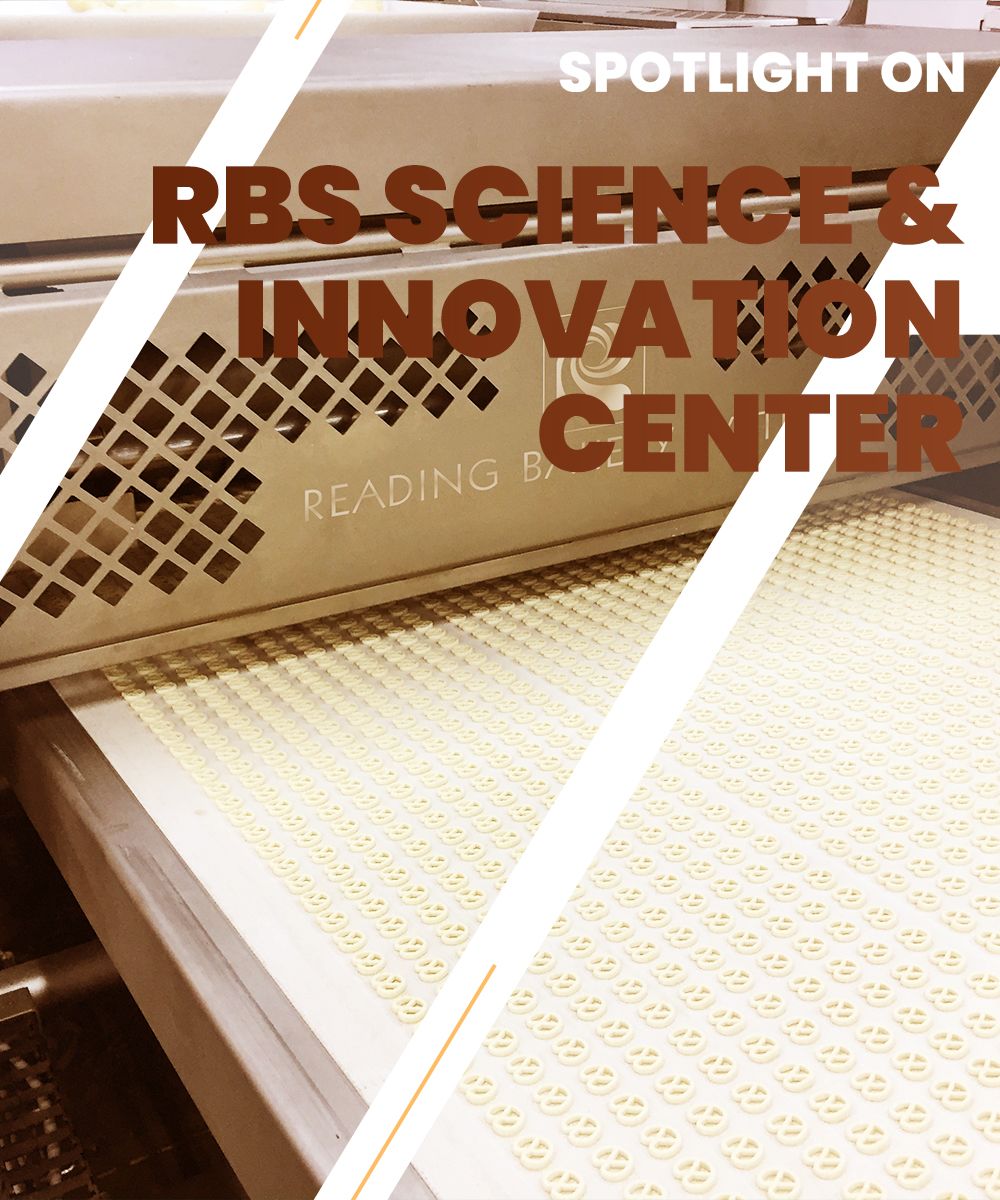
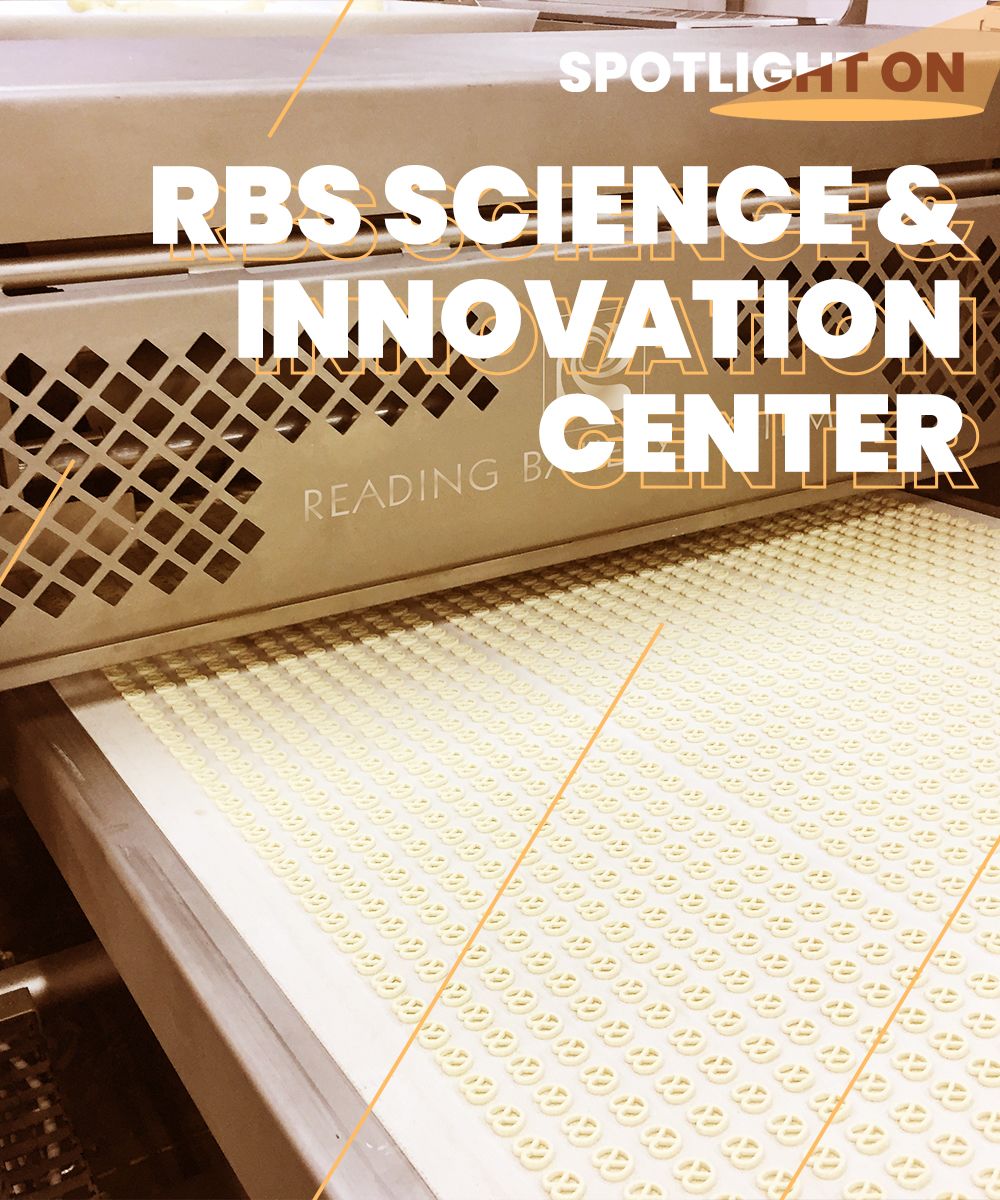
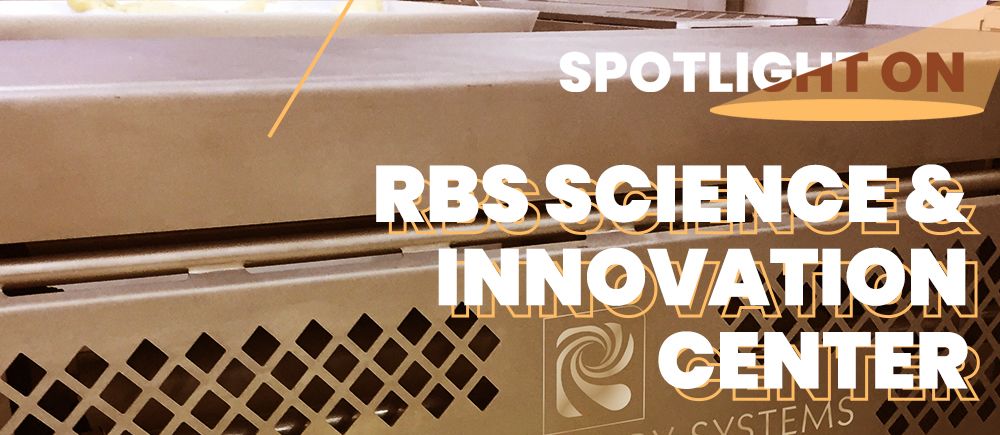
For customers looking to bring a new product to market or perfect processes for replication, the Science & Innovation Center is the perfect place to do so. As a fully equipped, licensed food processing research and development center, anyone can come in and use RBS’ mixing, forming, baking and drying equipment. The best part is that staff and customers work together to solve problems and identify new opportunities — whether it’s related to validating new ingredients, conducting shelf-life studies or producing market samples for testing.

Science & Innovation Center users include academic researchers carrying out experiments to test theories and concepts; major snack manufacturers testing out potential new snacks and products without sacrificing their own employee time, equipment time or production facilities; and RBS’ own staff, trialing new equipment and processes to meet the needs of the current day. As an added bonus, RBS team members can see firsthand where trends are headed, anticipate future needs and invent or adapt technology to meet those needs.
As a result, guests from around the world regularly travel to the Greater Reading area to use the Science & Innovation Center. Staff members and community members gain perspective and new insights, leading to new innovations and ideas, while local businesses thrive from the influx of visitors to the region. New products and equipment solutions, with world-class research and development facilities — all right here in Reading, PA.
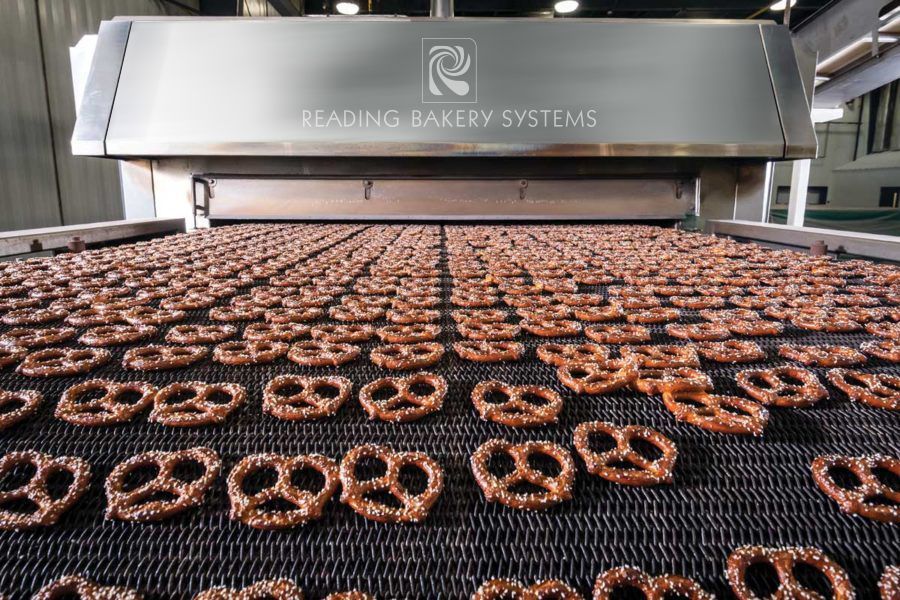
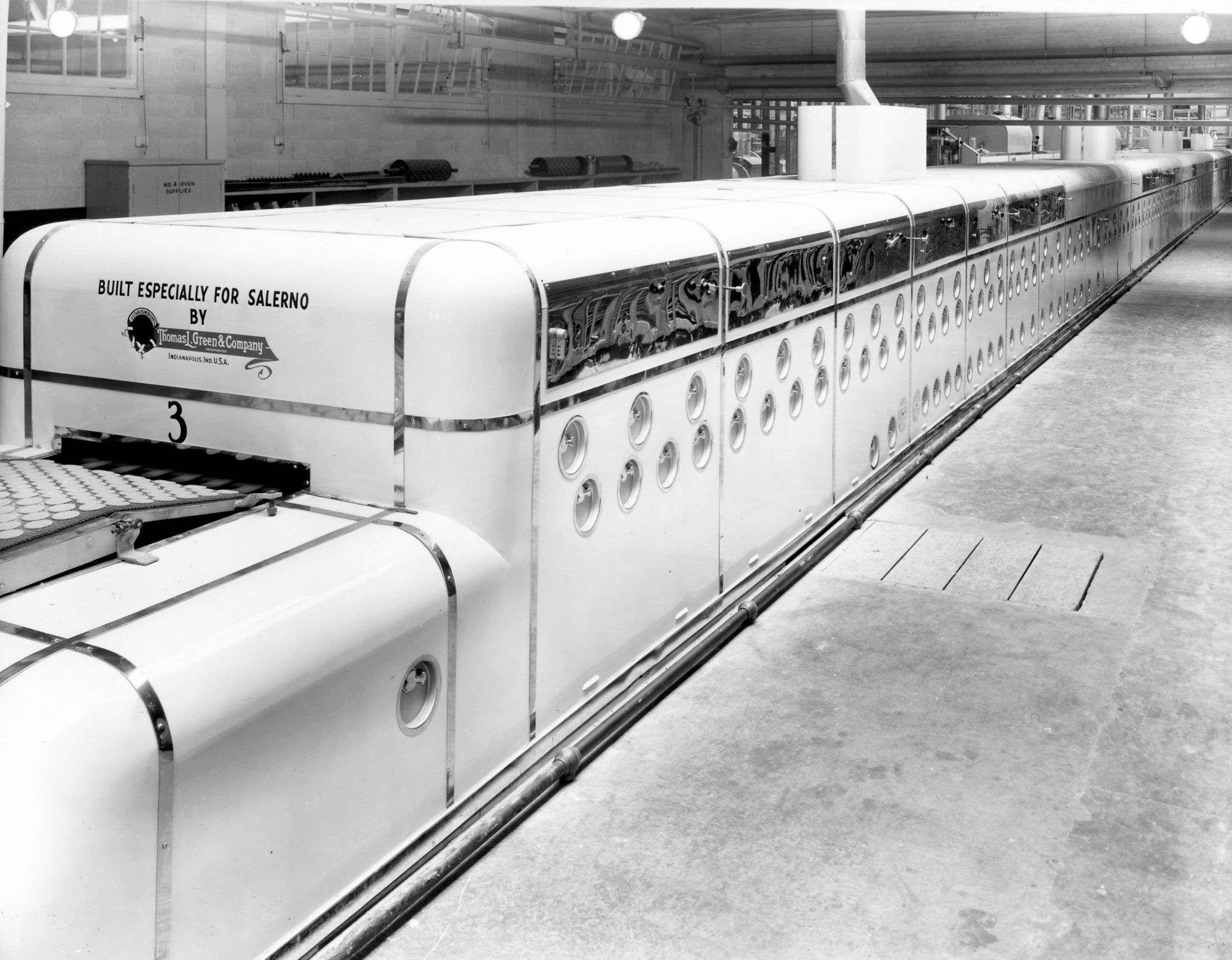
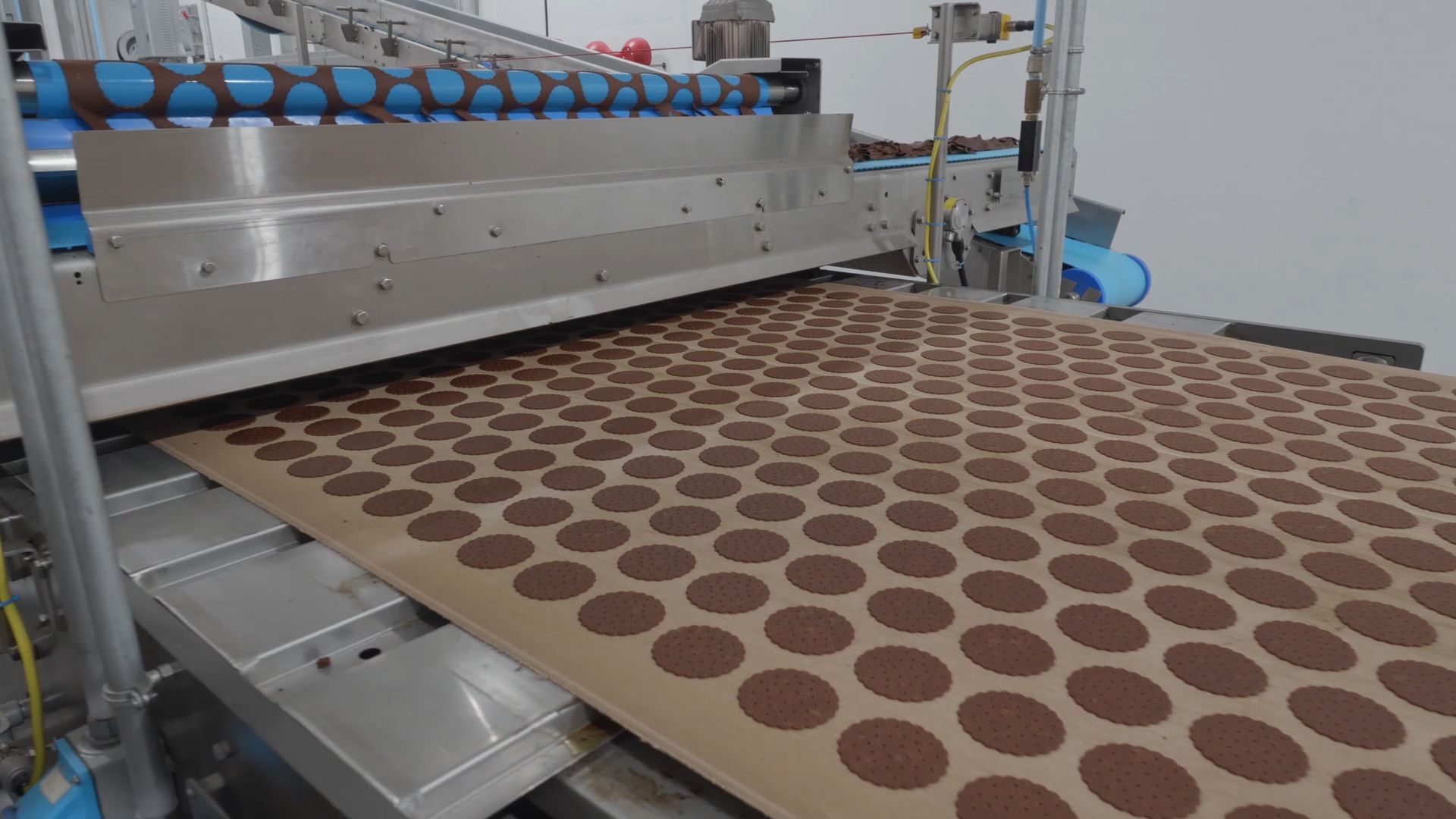
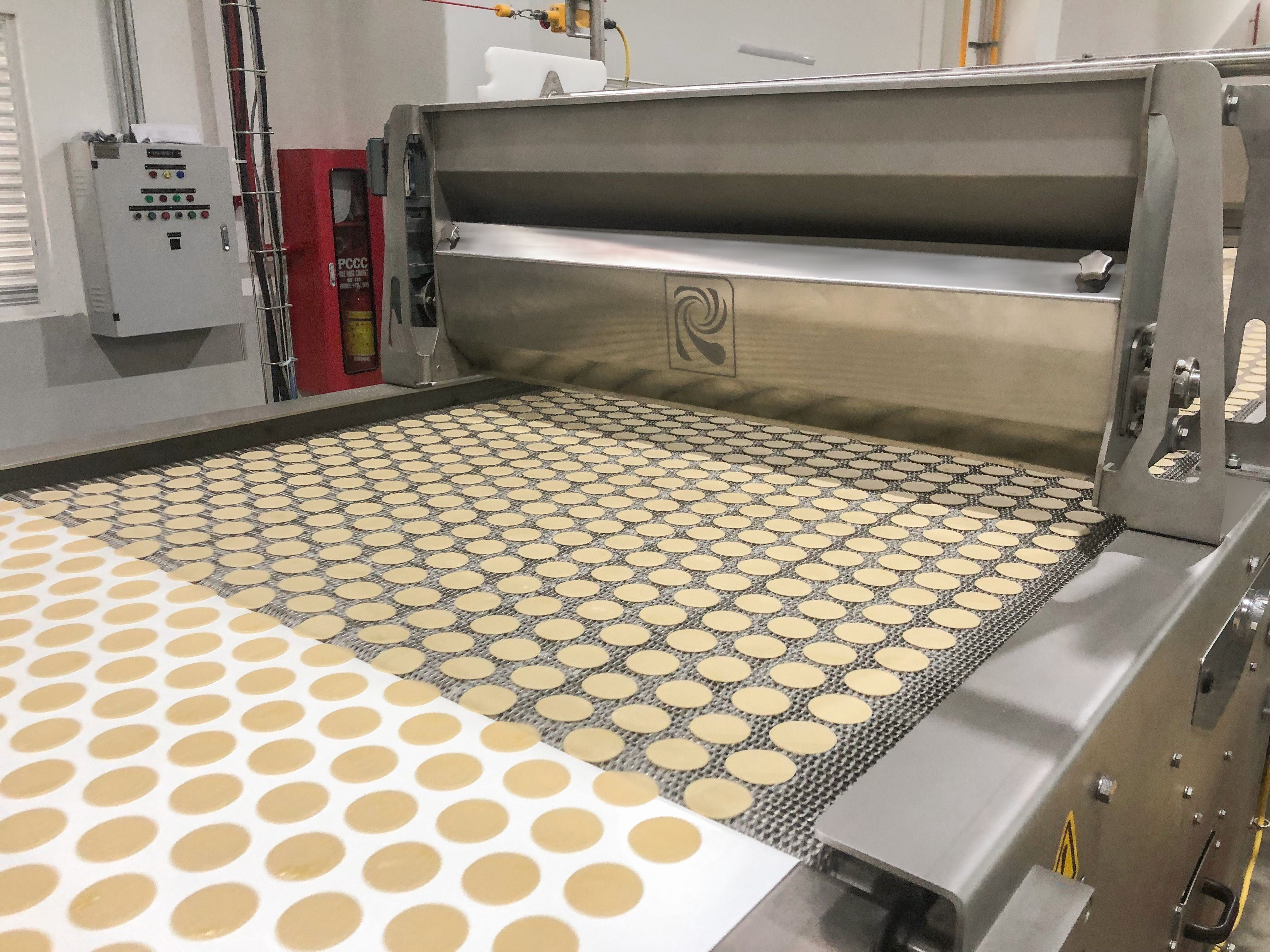
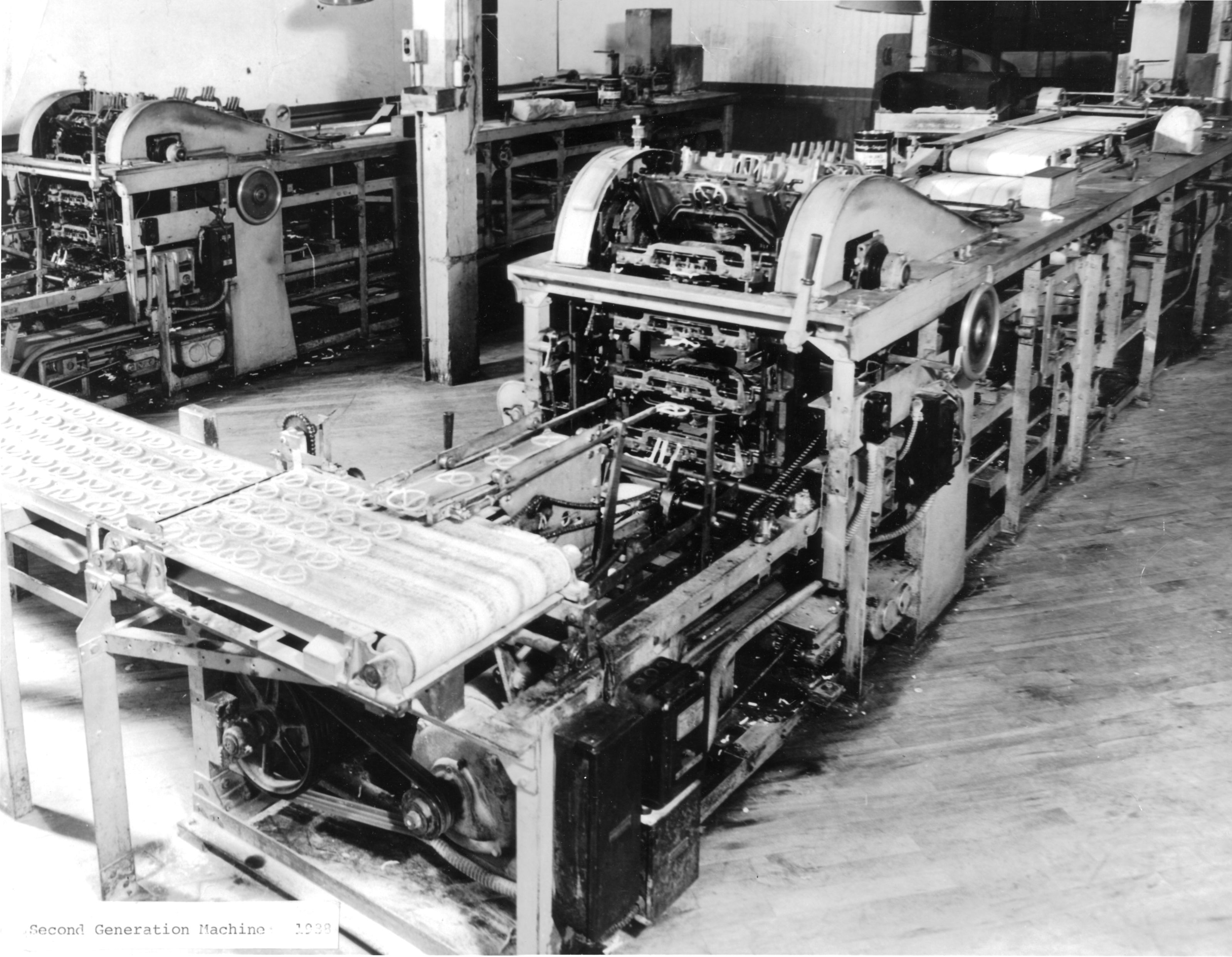
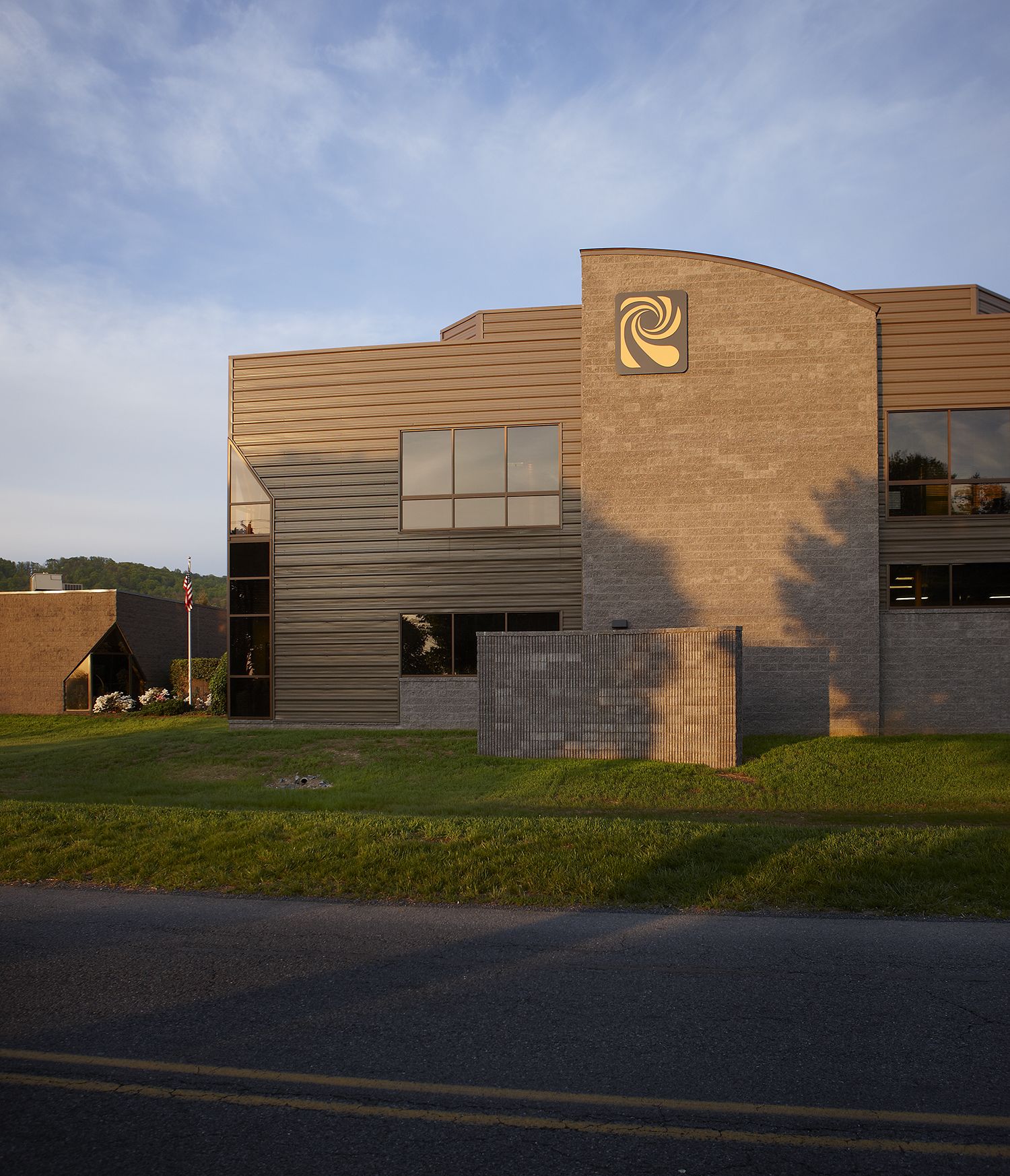
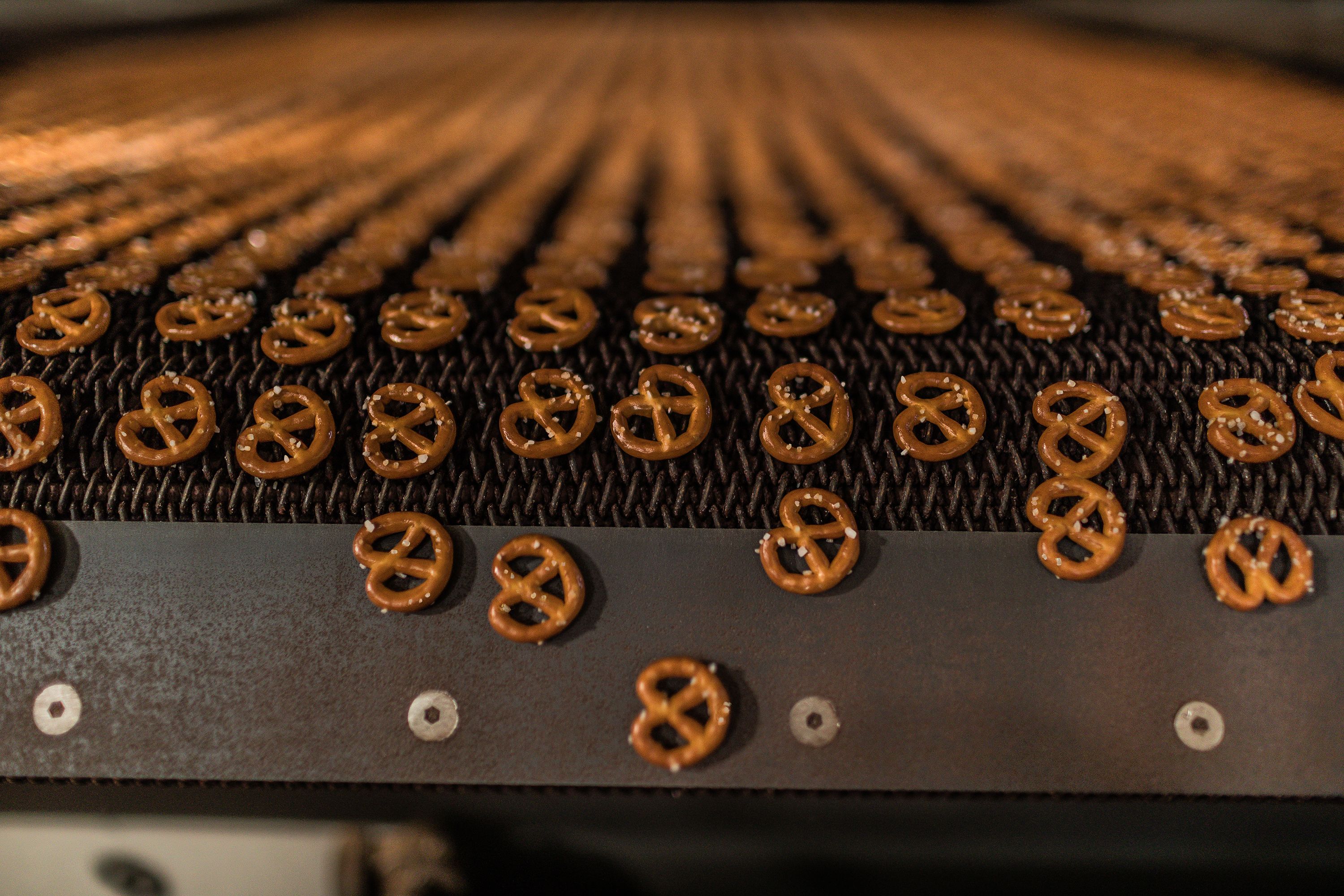







Innovation on
the Horizon
So what's next for Reading Bakery Systems?
Right now, the company has started planning to move staff and equipment from multiple facilities into a single, unified location in the Greater Reading area. With so many longtime employees from the region, there’s a desire to maintain those commitments and continue giving back to the community.
One area RBS is working to address is the current labor shortage in bakeries, especially in manufacturing facilities and bakeries. Combined with a renewed focus on sanitation, RBS is adapting and innovating its machines and systems to create more automated, efficient, faster and cleaner operations for snack food manufacturers worldwide.
They’re also thinking about sustainability and how they can tailor today’s solutions to meet tomorrow’s guidelines. After all, their equipment is designed to run for years — and what meets environmental requirements today may not five years from now. To that end, they’re looking at sustainable baking solutions, such as alternative fuel sources, improved oven designs or reduced emissions. Talented engineers, technicians and operations professionals will always have a home at RBS, especially as its leadership team prepares to tackle the next, exciting wave of innovation and industry advancement.
But no matter what changes are in store for RBS, one thing will always remain true: innovation, collaboration and adaptation will always be part of its DNA.

Innovation on the Horizon
So what's next for Reading Bakery Systems?

Right now, the company has started planning to move staff and equipment from multiple facilities into a single, unified location in the Greater Reading area. With so many longtime employees from the region, there’s a desire to maintain those commitments and continue giving back to the community.
One area RBS is working to address is the current labor shortage in bakeries, especially in manufacturing facilities and bakeries. Combined with a renewed focus on sanitation, RBS is adapting and innovating its machines and systems to create more automated, efficient, faster and cleaner operations for snack food manufacturers worldwide.
They’re also thinking about sustainability and how they can tailor today’s solutions to meet tomorrow’s guidelines. After all, their equipment is designed to run for years — and what meets environmental requirements today may not five years from now. To that end, they’re looking at sustainable baking solutions, such as alternative fuel sources, improved oven designs or reduced emissions. Talented engineers, technicians and operations professionals will always have a home at RBS, especially as its leadership team prepares to tackle the next, exciting wave of innovation and industry advancement.
But no matter what changes are in store for RBS, one thing will always remain true: innovation, collaboration and adaptation will always be part of its DNA.
Interested in learning more about a GRCA membership and a chance to be featured in an upcoming feature story?

